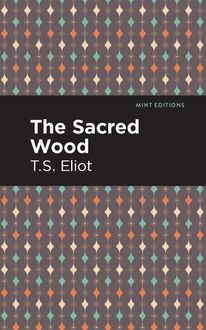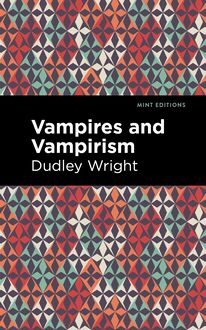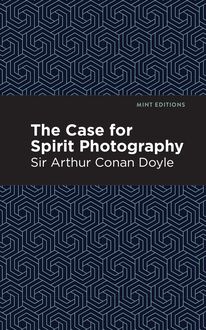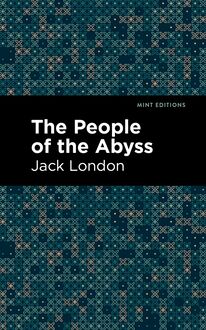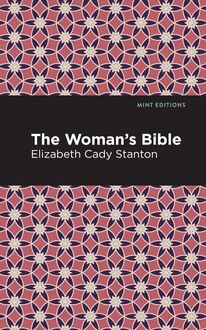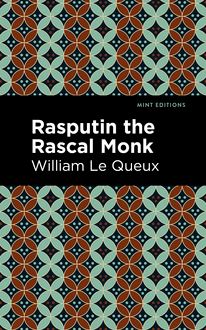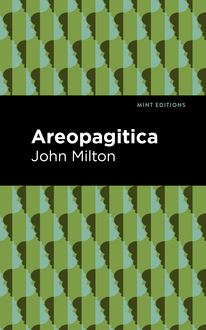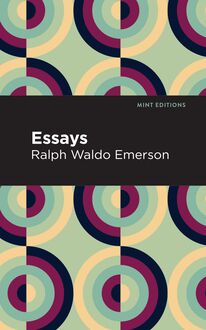-
 Univers
Univers
-
 Ebooks
Ebooks
-
 Livres audio
Livres audio
-
 Presse
Presse
-
 Podcasts
Podcasts
-
 BD
BD
-
 Documents
Documents
-
- Cours
- Révisions
- Ressources pédagogiques
- Sciences de l’éducation
- Manuels scolaires
- Langues
- Travaux de classe
- Annales de BEP
- Etudes supérieures
- Maternelle et primaire
- Fiches de lecture
- Orientation scolaire
- Méthodologie
- Corrigés de devoir
- Annales d’examens et concours
- Annales du bac
- Annales du brevet
- Rapports de stage
La lecture à portée de main
Vous pourrez modifier la taille du texte de cet ouvrage
Découvre YouScribe en t'inscrivant gratuitement
Je m'inscrisDécouvre YouScribe en t'inscrivant gratuitement
Je m'inscrisEn savoir plus
Vous pourrez modifier la taille du texte de cet ouvrage
En savoir plus

Description
From the author of the esteemed epic poem, Paradise Lost, comes one history’s most influential arguments against censorship. John Milton was known for his linguistic genius and political activity, often writing to support his views. During the height of the English Civil War, Milton published Areopagitica. Structured like an oral speech but delivered by pamphlets that Milton illegally printed and distributed, Areopagitica argues against censorship and advocates for the freedom of speech and expression. Published in 1644, Areopagitica is a direct response to the Licensing Order of 1643, opposing it so much that Milton defied the order to print his polemic. The Licensing Order of 1643 required authors to obtain a license from the British Parliament before their work could be published, which meant the government could control what was printed, and censor anything that went against the social norm or criticized their policies. Milton created an argument against this order, providing historical evidence and context against the licensing system, imagining the future harm the order would cause, and advocated for the use of books and literacy. Despite Milton’s avid and passionate argument, the right to a free press was not achieved for nearly fifty years. Still, Areopagitica shaped future philosophical and political ideas in several countries.
Areopagitica by John Milton is regarded as an important historical document, an influential text, and a perfect example of the intelligence of the legendary author, John Milton. As it was published in response to major historical events, Areopagitica preserves the emotional responses from English citizens during a crucial time in their history, and is regarded as one of the most influential arguments for free speech. Though John Milton did not achieve his original intentions, Areopagitica set a precedent for the philosophy of free thought and expression, which in turn has shaped the modern idea of freedoms and their implications.
This edition of Areopagitica by John Milton features a striking new cover design and is printed in an easy-to-read font, making it both accessible and modern.
.Sujets
Informations
| Publié par | Mint Editions |
| Date de parution | 16 février 2021 |
| Nombre de lectures | 0 |
| EAN13 | 9781513284408 |
| Langue | English |
Informations légales : prix de location à la page 0,0250€. Cette information est donnée uniquement à titre indicatif conformément à la législation en vigueur.
Extrait
Areopagitica
John Milton
Areopagitica was first published in 1644.
This edition published by Mint Editions 2021.
ISBN 9781513279268 | E-ISBN 9781513284408
Published by Mint Editions®
minteditionbooks .com
Publishing Director: Jennifer Newens
Design & Production: Rachel Lopez Metzger
Project Manager: Micaela Clark
Typesetting: Westchester Publishing Services
C ONTENTS A S PEECH FOR THE L IBERTY OF U NLICENSED P RINTING TO THE P ARLIAMENT OF E NGLAND
A S PEECH FOR THE L IBERTY OF U NLICENSED P RINTING TO THE P ARLIAMENT OF E NGLAND
This is true liberty, when free-born men,
Having to advise the public, may speak free,
Which he who can, and will, deserves high praise;
Who neither can, nor will, may hold his peace:
What can be juster in a state than this?
—Euripid. Hicetid.
They, who to states and governors of the Commonwealth direct their speech, High Court of Parliament, or, wanting such access in a private condition, write that which they foresee may advance the public good; I suppose them, as at the beginning of no mean endeavour, not a little altered and moved inwardly in their minds: some with doubt of what will be the success, others with fear of what will be the censure; some with hope, others with confidence of what they have to speak. And me perhaps each of these dispositions, as the subject was whereon I entered, may have at other times variously affected; and likely might in these foremost expressions now also disclose which of them swayed most, but that the very attempt of this address thus made, and the thought of whom it hath recourse to, hath got the power within me to a passion, far more welcome than incidental to a preface.
Which though I stay not to confess ere any ask, I shall be blameless, if it be no other than the joy and gratulation which it brings to all who wish and promote their country’s liberty; whereof this whole discourse proposed will be a certain testimony, if not a trophy. For this is not the liberty which we can hope, that no grievance ever should arise in the Commonwealth—that let no man in this world expect; but when complaints are freely heard, deeply considered and speedily reformed, then is the utmost bound of civil liberty attained that wise men look for. To which if I now manifest by the very sound of this which I shall utter, that we are already in good part arrived, and yet from such a steep disadvantage of tyranny and superstition grounded into our principles as was beyond the manhood of a Roman recovery, it will be attributed first, as is most due, to the strong assistance of God our deliverer, next to your faithful guidance and undaunted wisdom, Lords and Commons of England. Neither is it in God’s esteem the diminution of his glory, when honourable things are spoken of good men and worthy magistrates; which if I now first should begin to do, after so fair a progress of your laudable deeds, and such a long obligement upon the whole realm to your indefatigable virtues, I might be justly reckoned among the tardiest, and the unwillingest of them that praise ye.
Nevertheless there being three principal things, without which all praising is but courtship and flattery: First, when that only is praised which is solidly worth praise: next, when greatest likelihoods are brought that such things are truly and really in those persons to whom they are ascribed: the other, when he who praises, by showing that such his actual persuasion is of whom he writes, can demonstrate that he flatters not; the former two of these I have heretofore endeavoured, rescuing the employment from him who went about to impair your merits with a trivial and malignant encomium; the latter as belonging chiefly to mine own acquittal, that whom I so extolled I did not flatter, hath been reserved opportunely to this occasion.
For he who freely magnifies what hath been nobly done, and fears not to declare as freely what might be done better, gives ye the best covenant of his fidelity; and that his loyalest affection and his hope waits on your proceedings. His highest praising is not flattery, and his plainest advice is a kind of praising. For though I should affirm and hold by argument, that it would fare better with truth, with learning and the Commonwealth, if one of your published Orders, which I should name, were called in; yet at the same time it could not but much redound to the lustre of your mild and equal government, when as private persons are hereby animated to think ye better pleased with public advice, than other statists have been delighted heretofore with public flattery. And men will then see what difference there is between the magnanimity of a triennial Parliament, and that jealous haughtiness of prelates and cabin counsellors that usurped of late, when as they shall observe ye in the midst of your victories and successes more gently brooking written exceptions against a voted Order than other courts, which had produced nothing worth memory but the weak ostentation of wealth, would have endured the least signified dislike at any sudden proclamation.
If I should thus far presume upon the meek demeanour of your civil and gentle greatness, Lords and Commons, as what your published Order hath directly said, that to gainsay, I might defend myself with ease, if any should accuse me of being new or insolent, did they but know how much better I find ye esteem it to imitate the old and elegant humanity of Greece, than the barbaric pride of a Hunnish and Norwegian stateliness. And out of those ages, to whose polite wisdom and letters we owe that we are not yet Goths and Jutlanders, I could name him who from his private house wrote that discourse to the Parliament of Athens, that persuades them to change the form of democracy which was then established. Such honour was done in those days to men who professed the study of wisdom and eloquence, not only in their own country, but in other lands, that cities and signiories heard them gladly, and with great respect, if they had aught in public to admonish the state. Thus did Dion Prusaeus, a stranger and a private orator, counsel the Rhodians against a former edict; and I abound with other like examples, which to set here would be superfluous.
But if from the industry of a life wholly dedicated to studious labours, and those natural endowments haply not the worst for two and fifty degrees of northern latitude, so much must be derogated, as to count me not equal to any of those who had this privilege, I would obtain to be thought not so inferior, as yourselves are superior to the most of them who received their counsel: and how far you excel them, be assured, Lords and Commons, there can no greater testimony appear, than when your prudent spirit acknowledges and obeys the voice of reason from what quarter soever it be heard speaking; and renders ye as willing to repeal any Act of your own setting forth, as any set forth by your predecessors.
If ye be thus resolved, as it were injury to think ye were not, I know not what should withhold me from presenting ye with a fit instance wherein to show both that love of truth which ye eminently profess, and that uprightness of your judgment which is not wont to be partial to yourselves; by judging over again that Order which ye have ordained to regulate printing:—that no book, pamphlet, or paper shall be henceforth printed, unless the same be first approved and licensed by such, or at least one of such, as shall be thereto appointed. For that part which preserves justly every man’s copy to himself, or provides for the poor, I touch not, only wish they be not made pretences to abuse and persecute honest and painful men, who offend not in either of these particulars. But that other clause of licensing books, which we thought had died with his brother quadragesimal and matrimonial when the prelates expired, I shall now attend with such a homily, as shall lay before ye, first the inventors of it to be those whom ye will be loath to own; next what is to be thought in general of reading, whatever sort the books be; and that this Order avails nothing to the suppressing of scandalous, seditious, and libellous books, which were mainly intended to be suppressed. Last, that it will be primely to the discouragement of all learning, and the stop of truth, not only by disexercising and blunting our abilities in what we know already, but by hindering and cropping the discovery that might be yet further made both in religious and civil wisdom.
I deny not, but that it is of greatest concernment in the Church and Commonwealth, to have a vigilant eye how books demean themselves as well as men; and thereafter to confine, imprison, and do sharpest justice on them as malefactors. For books are not absolutely dead things, but do contain a potency of life in them to be as active as that soul was whose progeny they are; nay, they do preserve as in a vial the purest efficacy and extraction of that living intellect that bred them. I know they are as lively, and as vigorously productive, as those fabulous dragon’s teeth; and being sown up and down, may chance to spring up armed men. And yet, on the other hand, unless wariness be used, as good almost kill a man as kill a good book. Who kills a man kills a reasonable creature, God’s image; but he who destroys a good book, kills reason itself, kills the image of God, as it were in the eye. Many a man lives a burden to the earth; but a good book is the precious life-blood of a master spirit, embalmed and treasured up on purpose to a life beyond life. ’Tis true, no age can restore a life, whereof perhaps there is no great loss; and revolutions of ages do not oft recover the loss of a rejected truth, for the want of which whole nations fare the worse.
We should be wary therefore what persecution we raise against the living labours of public men, how we spill that seasoned life of man, preserved and stored up in books; since we see a kind of homicide
-
 Univers
Univers
-
 Ebooks
Ebooks
-
 Livres audio
Livres audio
-
 Presse
Presse
-
 Podcasts
Podcasts
-
 BD
BD
-
 Documents
Documents
-
Jeunesse
-
Littérature
-
Ressources professionnelles
-
Santé et bien-être
-
Savoirs
-
Education
-
Loisirs et hobbies
-
Art, musique et cinéma
-
Actualité et débat de société
-
Jeunesse
-
Littérature
-
Ressources professionnelles
-
Santé et bien-être
-
Savoirs
-
Education
-
Loisirs et hobbies
-
Art, musique et cinéma
-
Actualité et débat de société
-
Actualités
-
Lifestyle
-
Presse jeunesse
-
Presse professionnelle
-
Pratique
-
Presse sportive
-
Presse internationale
-
Culture & Médias
-
Action et Aventures
-
Science-fiction et Fantasy
-
Société
-
Jeunesse
-
Littérature
-
Ressources professionnelles
-
Santé et bien-être
-
Savoirs
-
Education
-
Loisirs et hobbies
-
Art, musique et cinéma
-
Actualité et débat de société
- Cours
- Révisions
- Ressources pédagogiques
- Sciences de l’éducation
- Manuels scolaires
- Langues
- Travaux de classe
- Annales de BEP
- Etudes supérieures
- Maternelle et primaire
- Fiches de lecture
- Orientation scolaire
- Méthodologie
- Corrigés de devoir
- Annales d’examens et concours
- Annales du bac
- Annales du brevet
- Rapports de stage

